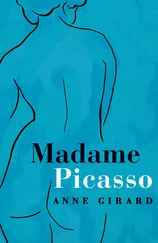Anne Garreta - Sphinx
Здесь есть возможность читать онлайн «Anne Garreta - Sphinx» весь текст электронной книги совершенно бесплатно (целиком полную версию без сокращений). В некоторых случаях можно слушать аудио, скачать через торрент в формате fb2 и присутствует краткое содержание. Год выпуска: 2015, Издательство: Deep Vellum Publishing, Жанр: Современная проза, на английском языке. Описание произведения, (предисловие) а так же отзывы посетителей доступны на портале библиотеки ЛибКат.
- Название:Sphinx
- Автор:
- Издательство:Deep Vellum Publishing
- Жанр:
- Год:2015
- ISBN:нет данных
- Рейтинг книги:3 / 5. Голосов: 1
-
Избранное:Добавить в избранное
- Отзывы:
-
Ваша оценка:
- 60
- 1
- 2
- 3
- 4
- 5
Sphinx: краткое содержание, описание и аннотация
Предлагаем к чтению аннотацию, описание, краткое содержание или предисловие (зависит от того, что написал сам автор книги «Sphinx»). Если вы не нашли необходимую информацию о книге — напишите в комментариях, мы постараемся отыскать её.
is a remarkable linguistic feat and paragon of experimental literature that has never been accomplished before or since in the strictly-gendered French language.
Anne Garréta
Pas un jour Emma Ramadan
Monospace
Sphinx — читать онлайн бесплатно полную книгу (весь текст) целиком
Ниже представлен текст книги, разбитый по страницам. Система сохранения места последней прочитанной страницы, позволяет с удобством читать онлайн бесплатно книгу «Sphinx», без необходимости каждый раз заново искать на чём Вы остановились. Поставьте закладку, и сможете в любой момент перейти на страницу, на которой закончили чтение.
Интервал:
Закладка:
In two weeks’ time there would be no memory of the person who had manned the turntables at the Apocryphe; someone else would have taken his place, running the same ship with the same consenting slaves. We left the bathroom after asking Elvire to exercise the greatest discretion as to what she had seen. Whether the manager won her silence through money or threats, I don’t know, but she kept quiet. We verified that Michel owed nothing at the coat check and we circulated the rumor that, feeling ill, he had asked the manager for permission to leave and had slipped out the fire exit, where he had parked his car. He didn’t have any friends at the Apocryphe; the effect of heroin on his behavior had left him alienated, and consequently no one inquired about what had become of him. For the duration of the incident, a pre-recorded tape had covered for the missing DJ. However, things couldn’t continue like this for the rest of the night.
George accompanied me to the DJ booth, a sort of podium that loomed over the dance floor. This glass-enclosed den was attached to one of the walls of the club, which was organized around it in concentric levels, making it the focal point. There were two lateral staircases leading to the back. George knew only the elementary principles of using the equipment, which he demonstrated to me succinctly, leaving it to me to break the code of how to properly manipulate the sound. He abandoned me there; now I was to reign over these fifteen square meters, cluttered with records and devices. It was my duty to make the crowd dance, those four hundred-something people who were in the club on that Friday night.
Never in my life had I done anything even remotely similar to what was suddenly demanded of me. Nothing that could have guided me came to mind. To manipulate the sound effects of a nightclub is quite different from putting some records on a stereo system. George left me with these extremely comforting words: “If you can’t figure it out, if you panic, put on a tape. The important thing is that everyone see there’s someone in this booth, and that there be no gaps in the music.” So I let the tape play on while I attempted to train myself in the technique and to find my bearings in the stock of records stacked in the crates and bins all around me. A record was spinning on one of the turntables, about to come to an end; Michel must have put it on before going to the bathroom to inject himself one last time. On the other turntable, at a standstill with the arm posed on the first grooves of a track, the record that he had most likely prepared for his return was waiting. With my index finger I took the arm of the first turntable and set it back at the beginning of the record. Grabbing the headphones, I listened to the track, then, moving the fader, I did the same with the second. I was trying to figure out the principle of logical succession in the sequence he had planned — his only will and testament. In more than a month of coming to the Apocryphe, not once had I paid attention to the way the music transitioned. It had been a blanket without a snag; I had noticed no rip or seam. But I did remember the melody of the record I was now listening to in the headphones; I had heard it numerous times but, I now realized, not all the way through. At the precise moment when a voice interrupted the melody, another track was usually overlaid. Which one or which ones, I wasn’t sure; I didn’t know any of the song titles.
It was two-thirty in the morning. I still had to fill the silence with noise for at least another three hours. Half-instinctively, half-methodically, I armed myself with a sheet of paper and started to explore the stock of records, trying to figure out how they had been organized. It seemed that the old records were arranged in the crates to my left and to my right, and the even older ones were under the turntables at my feet. I deduced their age by the state of their covers, a hypothesis I verified rapidly by pulling out four or five at random to find their copyright date. The records I found behind me, arranged facing out in the bins — probably to allow for rapid consultation — seemed to be the most recent. A more thorough examination of this part of the record collection revealed that it was constituted mostly of what are known in the business as “extended versions,” the maxi singles that offer one sole track on their two sides in different versions — vocal mix, instrumental mix, or remix. At first I didn’t discern any principle of order, but gradually concluded that they must have been put in a chronological, almost geological, stockpile following when they were released, since, when I listened to them, one after another came slow and then fast rhythms of different, if not contradictory, genres. I listened briefly but attentively to about thirty records in a quarter of an hour, forming a basic outline of classification. I had never studied music; the few violin lessons that my grandmother had given me were of little use — I had been loath to learn traditional musical notation and so my studies had come to a quick end, lacking any foundation. The music I listened to at home or at concerts was completely different from what I had to tackle then. The sequence of the initial list I was compiling was founded in what I perceived instinctively in the thuds of the bass in each of the tracks. What I was able to observe of the dance floor compelled me to think that the dancers’ movements revolved around these inaudible resonances shaking the floor beneath their feet. The tape that was playing while I was honing my technique confirmed my intuition. I tried a few times to identify the right moment to move from one record to another, and soon the essence of this transition became obvious to me.
The end of the tape was approaching. I put the two records Michel had left back on the turntables, restarting the musical continuity where it had been abandoned, and eased my way into the vast wave of rhythm carrying these bodies. On the mixer, for each turntable, there was a corresponding volume fader with its own equalizer — midrange and treble. I cued the first track on the turntable and sent the signal through the amplifiers and loudspeakers while gradually fading out the music from the tape recorder. I learned to repeat the same transition about every five minutes; the rhythm of my night was decided not by the music itself but by the necessity of its unfailing continuity. I didn’t have anyone to teach me this art form, but my approach, although it entailed quite a bit of initial fumbling, guaranteed a methodical manner that I later noticed many DJs lack.
I must have done a decent job; at the end of the night, George relayed the compliments people had made to him about me. In the implicit comparison with the deceased, whom people believed had left on a whim, I came out on top. People asked who I was, where I had come from, where I had previously been mixing, and George told them that one of his friends had brought me back in his suitcase from an underground club in Berlin where I had worked until now. As delighted as one can be with a corpse on his hands, he proposed that I continue the next day and, since the university’s vacation was coming up, that I take over the position for the three months of summer if I had nothing better to do. He gave me the five hundred francs that normally went to Michel and asked me to make a decision by the next day.
Around six in the morning, as I was starting to acquire a taste for my new post, he told me to stop the music. The club emptied of its last clients. In one corner the personnel were dividing up the tips collected during the night and receiving their allocated percentage on each beverage served. George stayed, along with the Padre and me, to turn off the lights and the amplifiers and to close the doors. The Padre, passing by the bathroom, made an ironic comment in allusion to the resurrections sprinkled throughout the Bible. Leaving the darkness of the Apocryphe, the light of day hurt my eyes. That sleepless night left me in a stupor. George went to execute the final steps of our plan. He left the Padre and me at the edge of the sidewalk with the following words: “God be with us!” The invocation wasn’t funny but it made me smile. I looked at the Padre; the morning sun bathing his face made it seem even paler. He thanked me for my help. The Padre confided in me later that George was one of his closest friends: they had spent two years studying together in a Jesuit college where the cream of the Madrid bourgeoisie sent their children. They had lost touch, reconnecting by chance years later in a Paris nightclub…He recounted the story of their friendship for me without ever explaining what had made them so close. In any case, all three of us henceforth were linked by a corpse. We separated at the taxi stand on Avenue Matignon and agreed to meet up later that night.
Читать дальшеИнтервал:
Закладка:
Похожие книги на «Sphinx»
Представляем Вашему вниманию похожие книги на «Sphinx» списком для выбора. Мы отобрали схожую по названию и смыслу литературу в надежде предоставить читателям больше вариантов отыскать новые, интересные, ещё непрочитанные произведения.
Обсуждение, отзывы о книге «Sphinx» и просто собственные мнения читателей. Оставьте ваши комментарии, напишите, что Вы думаете о произведении, его смысле или главных героях. Укажите что конкретно понравилось, а что нет, и почему Вы так считаете.












